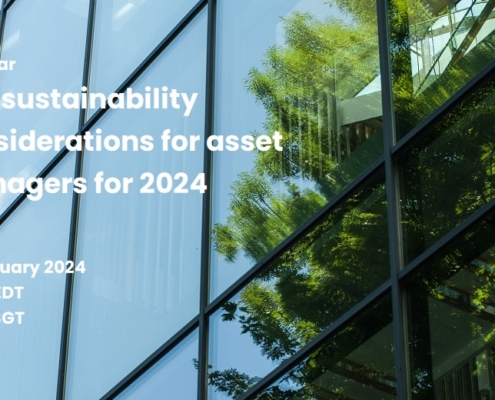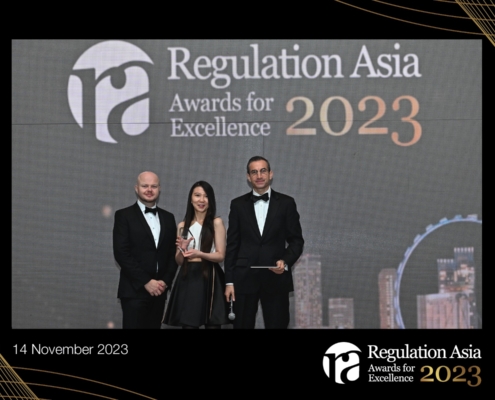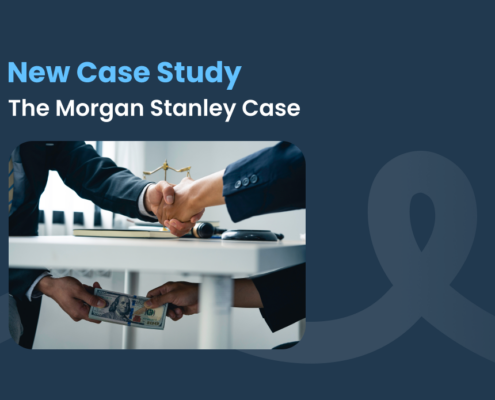Turning Compliance Training Challenges into Opportunities
Transparency International’s Corruption Perceptions Index & Tranche 2 AML Legislation in Australia.
Transparency International has just released the Corruption Perceptions Index (CPI) for 2022. The CPI ranks 180 countries and territories around the world by their perceived levels of public sector corruption, scoring on a scale of 0 (highly corrupt) to 100 (very clean). Australia is widely regarded as one of the least corrupt countries in the world, consistently ranking high on the Transparency International Corruption Perceptions Index. However, recent developments have highlighted the need for continued vigilance in the fight against corruption and money laundering.
Australia was ranked 13th on the 2022 Corruption Perceptions Index.
Our neighbors in New Zealand take out equal 2nd place with Finland and only Denmark ahead of them as the least corrupt countries. One major difference between Australia and New Zealand has been Australia’s reticence to implement anti-money laundering laws which would capture gatekeeper professions such as lawyers, accountants, and real estate agents.

How do nations combat AML risk?
The fight against money laundering and terrorism financing is a constant battle for countries worldwide. To help combat these activities, countries have implemented various Anti-Money Laundering (AML) and Counter-Terrorism Financing (CTF) laws and regulations.
In Australia, the government has been working to pass its Tranche 2 legislation aimed at strengthening the country’s AML/CTF framework.
The new regulation aims to address these issues by tightening regulations on a range of industries, including real estate, legal services, and accounting. The proposed legislation would require professionals in these fields to undergo anti-money laundering and anti-corruption training to ensure they have the knowledge and skills to identify and report suspicious activity. However, the legislation has faced numerous delays, push back from lobby groups, and hesitation regarding professional privilege, causing concern among experts and organisations such as the Financial Action Task Force (FATF).
What’s the current state of the legislation?
After many years of promises, Tranche 2 legislation was initially planned to be passed in 2020, but the process has been significantly delayed due to various factors, including the COVID-19 pandemic and the government’s focus on other priorities. The delay in passing the legislation has raised questions about Australia’s commitment to strengthening its AML/CTF framework and has led to criticism from FATF. The international organisation has expressed concerns about Australia’s lack of progress in implementing key recommendations, including those related to beneficial ownership information and the implementation of a risk-based approach to AML/CTF. It is hoped that the Albanese government will make the passage of this legislation a priority in 2023.
In comparison, New Zealand has taken a more proactive approach to implementing AML/CFT reforms.
The country passed its Anti-Money Laundering and Countering Financing of Terrorism Amendment Act (AML/CFT Amendment Act 2013), which strengthened New Zealand’s AML/CFT framework by introducing new obligations for reporting entities and enhancing the role of the country’s financial intelligence unit. Phase 2 of The Act was passed in 2017 and extended the Act to include real estate agents, lawyers, accountants, conveyancers, some businesses that deal in high-value goods, and betting on sports and racing.
The quick implementation of the AML/CFT Amendment Act in New Zealand shows that country’s commitment to strengthening its AML/CFT framework and addressing the concerns of international organisations like FATF.

Recent arrests highlight the prevalence of money laundering activity within Australia
The recent arrests in Sydney of Stephen Xin, his wife Yi Ming Wang, and Zhaohua Ma and others have shed light on the issue of money laundering through real estate in Australia. The arrests were part of a larger investigation into an alleged network of corrupt real estate agents, lawyers, and accountants who were facilitating the flow of illegal funds into and out of the country. AU$150 million of property has been seized in what is estimated to have been a $10 billion money laundering scheme.
These developments highlight the importance of bringing in the Tranche 2 regulation and training staff in high-risk industries to identify and report suspicious activity.
Anti-money laundering and anti-corruption training can help ensure that professionals are aware of the risks and are equipped to handle any potential red flags.
The delays in passing Tranche 2 legislation in Australia compared with the swift implementation of reforms in New Zealand highlights the difference in approach between the two countries in addressing the issue of money laundering and terrorism financing. FATF’s concerns about Australia’s lack of progress in implementing key recommendations underscore the importance of a strong and effective AML/CTF framework. It is crucial for Australia to address these concerns and pass its Tranche 2 legislation as soon as possible to ensure that the country remains compliant with international standards and remains a trusted financial centre.
Takeaways
Australia’s commitment to transparency and its ongoing efforts to combat corruption and money laundering are commendable. However, the recent arrests serve as a reminder that there is always more that can be done to maintain the integrity of the country’s financial system. The delays to Tranche 2 have allowed criminal networks to flourish in Australia.
As a community we all need to remain vigilant. Investing in the training of staff in high-risk industries is a crucial step in this direction and will help to ensure that Australia remains at the forefront of the fight against corruption and money laundering.
GRC Solutions Can Help
GRC Solutions offers off-the-shelf and bespoke compliance training modules for businesses about anti-money laundering and counter-terrorism financing requirements.
We also offer consulting services. Our consultants can help by assessing your AML program and your AML risk.
We partner with multi-award winning global RegTech firm, Arctic Intelligence, to promote their range of risk assessment software.
Download our brochure here
AML/CTF Training Products
Australia
Anti-Money Laundering – covering the responsibilities of financial services and other businesses in general
AML/CTF Training for Finance Sector – covering the particular responsibilities of ADIs
New Zealand
Anti-Money Laundering – New Zealand
USA
Singapore
Anti-Money Laundering – Singapore
Malaysia
Anti-Money Laundering – Malaysia












